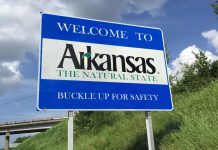A new report from the Colorado Office of the State Auditor has some stern words for the state’s Gaming Division. An audit of sports betting activity yielded ten recommendations and serious concerns about the process state regulators utilized to approve sports betting licensees in the state. Namely, the Gaming Division, which is housed under the Colorado Department of Revenue, failed to vet licensees to the minimum required level and also lacked the proper procedures to ensure operators were paying an accurate number of monthly taxes.
The auditors had the following to say about the key concerns resulting from the audit:
“During the first year of regulating sports betting, the Division of Gaming (Division), within the Department of Revenue (Department), did not have an effective process to investigate sports betting operations for temporary licensure, or to collect sufficient documentation to determine if sports betting operations’ monthly tax filings were accurate.”
The audit came with ten recommendations for the Division of Gaming to consider. Seven are related to the vetting process of potential licensees, while three recommendations centered on operator reporting. The Division agreed with all ten suggestions and provided plans and timelines to implement new processes and actions.
How did the regulators end up in this problematic position though? The audit offers several explanations, including a very rushed licensing process.
Short licensing window led to cut corners in the application process
Colorado legalized sports betting in November 2019, then started accepting wagers on May 1, 2020. With a five-month window from legislation to launch, the Division issued temporary licenses with a two-year duration. The applications for these licenses did not require the extensive vetting of a permanent license, but did require baseline criminal background checks and proof of financial solvency.
Even those, however, were not satisfied in many situations. The audit randomly selected five operator applicants and ten primary individual applicants to verify completed all necessary steps of the application process. In 60% of operator instances and 80% of primary cases, the base level of criminal background checks did not take place.
Financial vetting was more consistent, but there was still not proper documentation for even the temporary license.
These licenses recently expired. Rather than go through the lengthy process of permanent licensing, the Division instead is issuing a second temporary license to operators.
Lack of investigators created a massive backlog
The report states the Division intended to backfill some of the missing or underreported elements of license applications. COVID-19 and a hiring freeze put a damper on those plans. For most of FY 2021, the state only had three full time investigators and one supervisor to cover matters related to 33 master licensees in addition to 29 temporary licensees. The department is now up to seven investigators.
The audit also states that the Division did some of the work approving licensees and obtaining disclosures in meetings, but failed to properly document what took place.
The Division responded to the report, noting plans to utilize a technical writer to clarify and expand upon existing regulations with a goal to ensure clarity across all operators and licensees. These new regulations should be implemented by February 2023.
Expect more formalization with monthly reporting as well. The three reporting recommendations were all agreed upon by the Division. The department is working with the Governor’s Office of Information Technology (OIT) to improve data reporting. The goal is implementation by 2023.
Auditors suggest revision to free bet tax deductions
Colorado’s very lenient tax rules allow for broad deductions of free bets and promotional credits against an operator’s monthly revenue. This, along with a 10% tax rate, makes the state on of the more operator-friendly markets in the United States.
It also resulted in what is perceived by some as a lost opportunity for state coffers. The audit drew specific attention to this measure in the report. According to auditor figures, the state lost out on an additional $700,000 in tax revenue because of free bet deductions. Instead of roughly $6.6 million in tax revenue, Colorado could have brought in $7.3 million. Since launch, Colorado has taken over $4 billion in wagers as of February.
The five-member state Gaming Commission defended its choice by pointing to similar measures in New Jersey and Indiana, but the report notes this is not an apples to apples comparison. While state auditors found the Commission was within its right to implement the current system, the report does call on the General Assembly to reconsider the rule.














